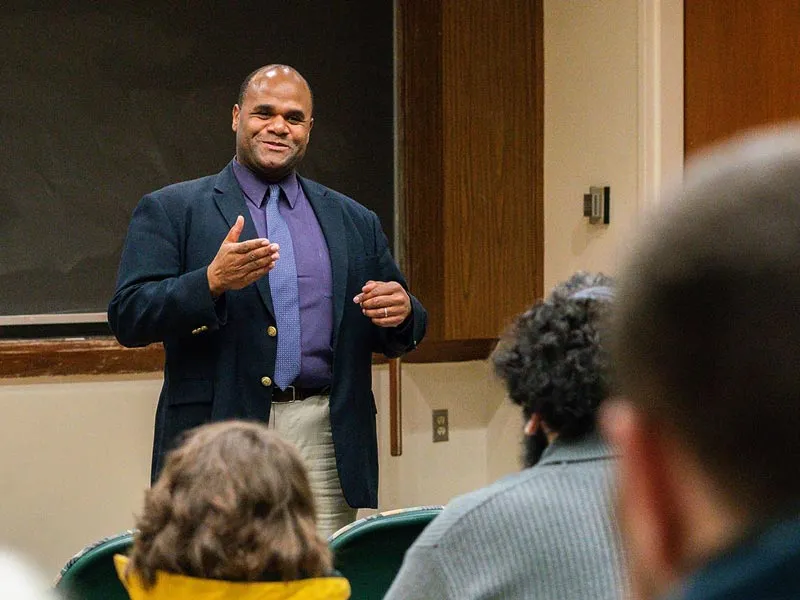
Biography
Marvin McNeill is a Ph.D. candidate in ethnomusicology at Wesleyan University and lives in West Hartford, CT. After serving 20 years as a college band director, Marvin returned to school to pursue and expand upon personal research interests and passions. Marvin's research interests include African American music traditions, especially that of New Orleans brass bands, HBCU marching bands, and shout bands. Other research interests include the music and youth culture, music and community, and brass bands from around the world. Marvin is the founding member of The Funky Dawgz Brass Band - a New Orleans style Brass Band that has toured locally, regionally, nationally, and internationally, to include New Orleans and even Tulane University. The Funky Dawgz have opened for such great New Orleans bands as The Rebirth Brass Band, The Stooges, The Soul Rebels, Preservation Hall Jazz Band, Glen David Andrews, and Trombone Shorty.
Research
This research project investigates the music, history, and socio-cultural importance of the To Be Continued Brass Band (TBC) of New Orleans, LA. TBC serves as a very important link in the legacy of Black New Orleans brass bands, bridging the rich musical and cultural band tradition between Pre- and Post-Katrina. TBC's consistent presence on the corner of Bourbon and Canal streets between 2002 and 2011 provided an invigorating soundscape that helped to reignite the spirit of New Orleans.
2022 marks TBC's 20th year as a band. Coming together at George Washington Carver High School, located the Ninth Ward, these young African American males formed a brass band that would eventually become an iconic sound mark of the city. For TBC, faith, family, community, and music serve as pillars of strength in overcoming extreme obstacles in their Black lives. What can be learned from their life experiences and music? And what broader implications can be rendered from this knowledge, especially coming directly from the oft neglected perspective of Black youth.
Drawing from in-depth ethnographic research on TBC, this study offers a unique perspective on ways African American youth develop and affirm a sense of community through music-making. This project adds to previous scholarship by extracting and broadening the scope of what can be learned and better understood about Black youth culture through the study of music. Additionally, data gathered from this project will be utilized in a larger collaborative project with members of TBC celebrating their 20th anniversary as band.


